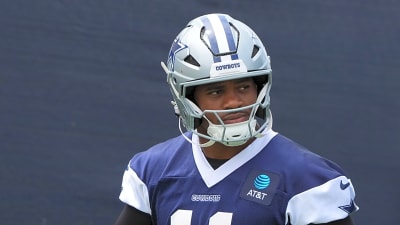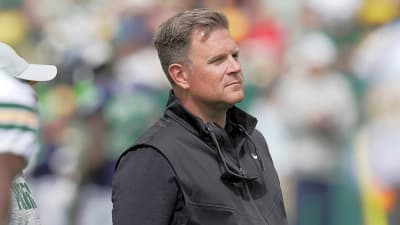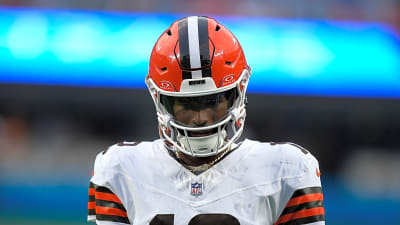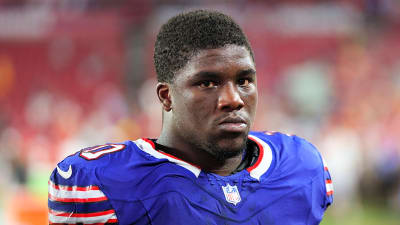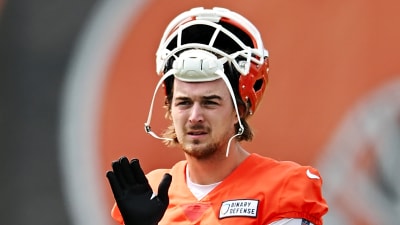
When the Memphis Grizzlies signed Ty Jerome to a three-year, $28 million deal this offseason, I knew the move would spark plenty of debate. Jerome was coming off his best season as a pro with the Cleveland Cavaliers, and his numbers (12.5 points per game on 51.6% shooting from the field and 43.9% from three) put him in the national spotlight.
Bleacher Report’s Grant Hughes recently predicted Jerome would be “Cleveland’s biggest faller” for next season—even though he is no longer in Cleveland. His logic is that Jerome’s shooting numbers were unsustainably hot and that Memphis’ backcourt, anchored by Ja Morant and Scotty Pippen Jr., would limit Jerome’s opportunities.
I respect Hughes’ analysis, but based on my position in Memphis, he could be wrong.
Why B/R Might Be Wrong About Ty Jerome’s Fit With the Grizzlies
Why Memphis Could Be the Perfect Fit
Yes, Jerome benefited from Cleveland’s spacing and ball movement last season, but Memphis presents him with a different opportunity. The Grizzlies just parted ways with Desmond Bane, their second-best offensive option, in exchange for draft picks and Kentavious Caldwell-Pope. That leaves a scoring void that someone has to fill, and Jerome is more than capable of stepping into that role.
TheGrizzlies aren’t asking Jerome to replace Bane’s star power. Instead, they want him to do what he already proved he can: provide efficient scoring off the bench, stretch the floor with his shooting, and bring veteran poise to a young locker room. In Memphis, the spotlight will be brighter, which could mean more touches, not fewer.
More Than Just a Bench Scorer
One misconception about Jerome is that he can only thrive in a secondary role. But his game is versatile. He is a firm pick-and-roll ball handler, can create space with his floater, and does not hesitate to take big shots late in games.
On a Memphis team that has struggled with depth in recent seasons, Jerome’s ability to handle the ball could allow him to play alongside Morant instead of just behind him. A Morant-Jerome backcourt offers speed, playmaking, and shooting, which could catch opposing defenses off guard.
I think Hughes underestimates Jerome’s potential in that area. This is not just a repeat of his Cleveland role; it could be an expanded one.
Regression Is Not Guaranteed
Hughes is right: numbers like Jerome’s do not always hold up. Shooting over 50 percent from the field and nearly 44 percent from deep is elite by any standard. However, dismissing him as a candidate for regression overlooks the fact that Jerome has steadily improved every season of his career.
Confidence matters in the NBA, and Jerome now has both the contract and the role to prove last season was not a fluke. Memphis needs him to score, and when opportunity meets preparation, production usually follows.
Why I Am Betting on Jerome
I have covered enough Memphis basketball to know this city embraces players who prove themselves under pressure. Jerome is stepping into a team that is hungry to prove it can win without Bane and still push for a playoff spot. He does not have to be perfect; he has to keep doing what made him a Sixth Man of the Year finalist.
Will his efficiency dip slightly? Probably. Very few players can maintain that level of shooting. But could he average more points per game, expand his role, and become one of Memphis’ most important players? Absolutely.
So while Grant Hughes sees regression on the horizon, I see opportunity. If Jerome capitalizes, he could prove many people wrong, including Bleacher Report.
More must-reads:
- Giants QB Russell Wilson believed to have short leash
- Red Sox release two-time All-Star starting pitcher
- The 'NFL QB season rushing leaders' quiz
Breaking News
Trending News
Customize Your Newsletter
 +
+
Get the latest news and rumors, customized to your favorite sports and teams. Emailed daily. Always free!

